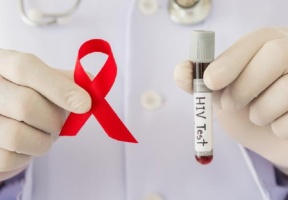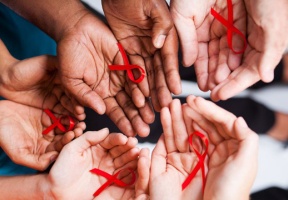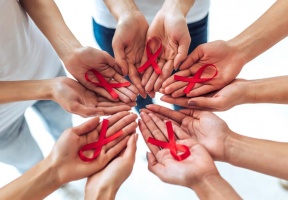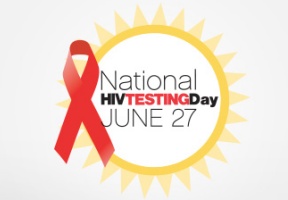

By: Ashmar Mandou
According to Getting to Zero Illinois (GTZ-IL), a state-wide initiative to end the HIV epidemic in the state by 2030, an estimated 39, 842 people were living with HIV in Illinois in 2017 and new HIV transmissions in Illinois dropped by nearly 35 percent over the last decade. The hard work continues and in honor of National HIV Testing Day (June 27th) Getting to Zero Illinois along with community-based organizations such as Erie Family Health Centers are committed to dramatically shifting HIV in Illinois. As partner of Getting to Zero Illinois, Erie intends to take even greater strides toward eliminating HIV in the state and encourages everyone to utilize their services to know their HIV status. Dr. Santina Wheat MD, MPH of Erie Family Health Centers spoke to Lawndale Bilingual News about the importance of getting test and where you can go for free HIV testing.
Lawndale Bilingual News: Today marks National HIV Testing Day and Erie Family Health Centers has been on the front line for decades educating people and providing life-saving services throughout Chicago. How would you describe the significance of Erie’s role in helping to end the HIV epidemic?
Dr. Santina Wheat MD, MPH: Since the late 1980’s, Erie Family Health Centers has provided HIV/AIDS testing and support through Lending Hands for Life (LHL), which offers extensive services providing holistic care with an individualized focus. LHL has complete wraparound care services including medical and non-medical case management, PrEP (pre-exposure prophylaxis), and behavioral, lab, nutrition, legal and housing services. In 2018, LHL reached its highest success rate in its history with 93.4 percent of HIV patients achieving suppressed viral loads (level of HIV in their blood). This is extremely important because when patients have achieved suppressed viral loads, not only are they healthier, but they also do not pass on the virus. As such, we have been helpful in keeping patients living with HIV healthy and have helped prevent the spread of HIV, as well.
Can you talk to me about how the Lending Hands for Life program is helping Chicagoans living with HIV?
Lending Hands for Life (LHL) is able to provide holistic and confidential care for patients living with HIV and their families. As the program is part of the greater Erie Family Health Centers, patients are able to seek out care without the stigma of walking into a clinic that just cares for patients with HIV. LHL has complete wraparound care services including medical and non-medical case management, and behavioral, lab, nutrition, legal and housing services. We are also able to provide PrEP (pre-exposure prophylaxis) to partners of patients living with HIV. We have peer support groups available for our patients in both English and Spanish and offer education to friends and family members.
HIV remains a subject that is shrouded in fear, stigma and discrimination among the Latinx community. How does Erie navigate through that so those seeking help feel encouraged, supported and safe?
We provide care for patients living with HIV in two of our locations, Erie Humboldt Park Health Center and Erie Foster Avenue Health Center, which are both large sites with general care for many different patients. This means that by walking into our health centers, a patient is not immediately identified as a patient living with HIV. We are able to provide all of our medical, behavioral, dental and health education services in both English and Spanish. We also offer support groups in both English and Spanish. We also engage the help of a consumer advisory council who provide input on any changes being made within the program and also offer recommendations on how to make the program more supportive and inclusive. Our case managers and medical providers always offer the opportunity for our patients to bring in friends and family members so that we can help answer any questions to help our patients feel more accepted in their homes and families, as well.
What prevention methods are available for those living with HIV?
Abstinence, mutual monogamy and condom use are extremely important aspects of HIV prevention. We also have the availability of PrEP, or pre-exposure prophylaxis. PrEP is a single pill that can be taken daily that prevents someone from getting HIV. This is a seasonal option, so a person only needs to take the medication during times that they are at risk. Finally, treatment is prevention. When a patient with HIV takes medication and their viral load is suppressed or undetectable, they are unable to give the virus to anyone else. Undetectable = Untransmittable or U=U
As a recent member of Getting to Zero Illinois, how does Erie aim to further tackle HIV in the state?
Erie is working to expand its provision of PrEP (pre-exposure prophylaxis) to both current patients and to patients who are looking for a new medical home. We also offer walk-in testing because knowing your status is an important in step in determining if treatment is needed or if PrEP may be a good option. Erie Family Health Centers offers free and confidential HIV testing at Erie Humboldt Park Health Center Monday through Friday from 10-4pm. Erie Evanston/Skokie Health Center has a walk-in STI clinic on Friday afternoons from 1-4pm, which includes HIV testing. You don’t need to be a patient, a Chicago resident, or even be a citizen – all you need is a photo ID. We also will continue to provide high quality medical care to patients living with HIV.
Lastly, what advice would you give someone afraid to take an HIV test?
Although taking a test can be scary, it is also scary to not know. If your test is negative, we can talk about steps you can take to prevent HIV. If your test is positive, Erie Family Health Centers and other organizations are here to help you. HIV treatment has improved greatly over the past few years. We are now usually able to treat the virus with one pill daily. It has become a chronic disease that can be easy to treat just like high blood pressure or diabetes. Many testing settings offer tests with case managers or health educations who are available to help answer any questions that may come up – no matter the outcome of the test.













